#Kelly Weinersmith
Text
So I've been reading through A City on Mars(it's engaging, well-written, and Funny. If you have any interest at all in space exploration and settlement, I thoroughly recommend checking it out) and, beyond everything else, I just want to say how Fucking Gross space-travel is. Just absolutely Disgusting. My God: why would anybody do this? Why would ANYBODY want to Put Themselves through this?? Zeus above it's So Vile. Don't worry, I'm not going to share the details here, you can read the book yourselves if you want to know but, Sincerely, Yuck :| Yuck Yuck Yuck :| :| I'll wait until we've mastered the Amenities, thank you very much X| X| X|
#Kelly Weinersmith#Zach Weinersmith#A City on Mars#Space#Space Travel#Space Settlement#SciFi#Terrible Space Facts#Our Staff#zA Opinions#zA Writes
8 notes
·
View notes
Text
Was reading Soonish by Kelly and Zach Weinersmith. There was a chapter about synthetic biology, and I immediately thought of Ross Federman and my brain started reading the chapter in his voice.
#tally hall#tallyhall#ross federman#generate biomedics#synthetic biology#soonish#kelly weinersmith#zach weinersmith#books#reading
2 notes
·
View notes
Text

"The commercial race to space has been picking up speed in the last few years, as people like Elon Musk are rushing to develop the rocket technology to ferry human beings to Mars, to live there.
It's an exciting prospect, and one that has captured the imaginations of writers for decades.
But what would life on Mars look like? And is it even possible?
Dr Kelly Weinersmith has written a book with her husband, Zach, to answer those questions and more - like, how would humans procreate in little to no gravity? And what on earth is a snuggle tube?"
Sex, law, and life on Mars.
0 notes
Text
0 notes
Text
0 notes
Text
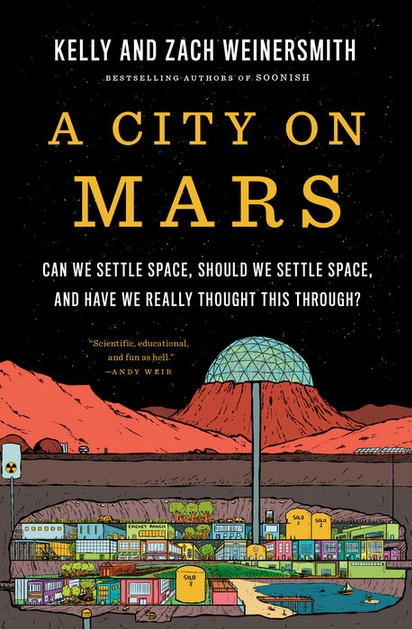
Fun, interesting non-fiction, learned a bunch of stuff about space exploration and what we don't know yet. There's something really good about books that just set out a bunch of questions and what we know about the parameters. Would recommend for anyone interested in the current state of space travel.
0 notes
Text
Kelly and Zach Weinersmith’s “A City On Mars”
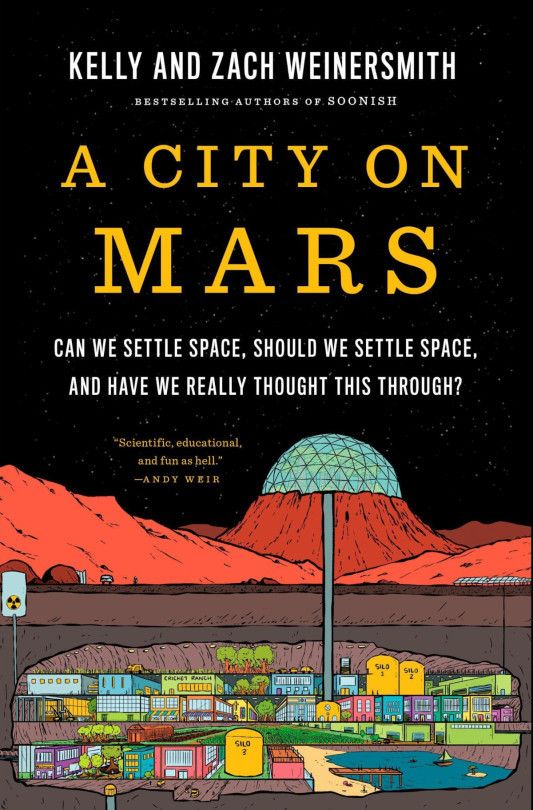
In A City On Mars, biologist Kelly Weinersmith and cartoonist Zach Weinersmith set out to investigate the governance challenges of the impending space settlements they were told were just over the horizon. Instead, they discovered that humans aren't going to be settling space for a very long time, and so they wrote a book about that instead:
https://www.acityonmars.com/
The Weinersmiths make the (convincing) case that ever aspect of space settlement is vastly beyond our current or reasonably foreseeable technical capability. What's more, every argument in favor of pursuing space settlement is errant nonsense. And finally: all the energy we are putting into space settlement actually holds back real space science, which offers numerous benefits to our species and planet (and is just darned cool).
Every place we might settle in space – giant rotating rings, the Moon, Mars – is vastly more hostile than Earth. Not just more hostile than Earth as it stands today – the most degraded, climate-wracked, nuke-blasted Earth you can imagine is a paradise of habitability compared to anything else. Mars is covered in poison and the sky disappears under planet-sized storms that go on and on. The Moon is covered in black-lung-causing, razor-sharp, electrostatically charged dust. Everything is radioactive. There's virtually no water. There are temperature swings of hundreds of degrees every couple of hours or weeks. You're completely out of range of resupply, emergency help, or, you know, air.
There's Helium 3 on the Moon, but not much of it, and there is no universe in which is it cheaper to mine for Helium 3 on the Moon than it is to mine for it on Earth. That's generally true of anything we might bring back from space, up to and including continent-sized chunks of asteroid platinum.
Going to space doesn't end war. The countries that have gone to space are among the most militarily belligerent in human history. The people who've been to space have come back perfectly prepared to wage war.
Going to space won't save us from the climate emergency. The unimaginably vast trove of material and the energy and advanced technology needed to lift it off Earth and get it to Mars is orders of magnitude more material and energy than we would need to resolve the actual climate emergency here.
We aren't anywhere near being a "multiplanetary species." The number of humans you need in a colony to establish a new population is hard to estimate, but it's very large. Larger than we can foreseeably establish on the Moon, on Mars, or on a space-station. But even if we could establish such a colony, there's little evidence that it could sustain itself – not only are we a very, very long way off from such a population being able to satisfy its material needs off-planet, but we have little reason to believe that children could gestate, be born, and grow to adulthood off-planet.
To top it all off, there's space law – the inciting subject matter for this excellent book. There's a lot of space law, and while there are some areas of ambiguity, the claims of would-be space entrepreneurs about how their plans are permissible under the settled parts of space law don't hold up. But those claims are robust compared to claims that space law will simply sublimate into its constituent molecules when exposed to the reality of space travel, space settlement, and (most importantly) space extraction.
Space law doesn't exist in a vacuum (rimshot). It is parallel to – and shares history with – laws regarding Antarctica, the ocean's surface, and the ocean's floor. These laws relate to territories that are both vastly easier to access and far more densely populated by valuable natural resources. The fact that they remain operative in the face of economic imperatives demands that space settlement advocates offer a more convincing account than "money talks, bullshit walks, space law is toast the minute we land on a $14 quadrillion platinum asteroid."
The Weinersmiths have such an account in defense of space law: namely, that space law, and its terrestrial analogs, constitute a durable means of resolving conflicts that would otherwise give rise to outcomes that are far worse for science, entrepreneurship, human thriving or nation-building than the impediments these laws represent.
What's more, space law is enforceable. Not only would any space settlement be terribly, urgently dependent on support from Earth for the long-foreseeable future, but every asteroid miner, Lunar He3 exporter and Martian potato-farmer hoping to monetize their products would have an enforcement nexus with a terrestrial nation and thus the courts of that nation.
But the Weinersmiths aren't anti-space. They aren't even anti-space-settlement. Rather, they argue that the path to space-based scientific breakthroughs, exploration of our solar system, and a deeper understanding of our moral standing in a vast universe cannot start with space settlements.
Landing people on the Moon or Mars any time soon is a stunt – a very, very expensive stunt. These boondoggles aren't just terribly risky (though they are – people who attempt space settlement are very likely to die horribly and after not very long), they come with price-tags that would pay for meaningful space science. For the price of a crewed return trip to Mars, you could put multiple robots onto every significant object in our solar system, and pilot an appreciable fleet of these robot explorers back to Earth with samples.
For the cost of a tiny, fraught, lethal Moon-base, we could create hundreds of experiments in creating efficient, long-term, closed biospheres for human life.
That's the crux of the Weinersmiths' argument: if you want to establish space settlements, you need to do a bunch of other stuff first, like figure out life-support, learn more about our celestial neighbors, and vastly improve our robotics. If you want to create stable space-settlements, you'll need to create robust governance systems – space law that you can count on, rather than space law that you plan on shoving out the airlock. If you want humans to reproduce in space – a necessary precondition for a space settlement that lasts more than a single human lifespan – then we need to do things like breed multiple generations of rodents and other animals, on space stations.
Space is amazing. Space science is amazing. Crewed scientific space missions are amazing. But space isn't amazing because it offers a "Plan B" for an Earth that is imperiled by humanity's recklessness. Space isn't amazing because it offers unparalleled material wealth, or unlimited energy, or a chance to live without laws or governance. It's not amazing because it will end war by mixing the sensawunda of the "Pale Blue Dot" with the lebensraum of an infinite universe.
A science-driven approach to space offers many dividends for our species and planet. If we can figure out how to extract resources as dispersed as Lunar He3 or asteroid ice, we'll have solved problems like extracting tons of gold from the ocean or conflict minerals from landfill sites, these being several orders of magnitude more resource-dense than space. If we can figure out how to create self-sustaining terraria for large human populations in the radiation-, heat- and cold-blasted environs of space, we will have learned vital things about our own planet's ecosystems. If we can build the robots that are necessary for supporting a space society, we will have learned how to build robots that take up the most dangerous and unpleasant tasks that human workers perform on Earth today.
In other words, it's not just that we should solve Earth's problems before attempting space settlement – it's that we can't settle space until we figure out the solutions to Earth's problems. Earth's problems are far simpler than the problems of space settlement.
As I read the Weinersmiths' critique of space settlement, I kept thinking of the pointless AI debates I keep getting dragged into. Arguments for space settlement that turn on existential risks (like humanity being wiped out by comets, sunspots, nuclear armageddon or climate collapse) sound an awful lot like the arguments about "AI safety" – the "risk" that the plausible sentence generator is on the verge of becoming conscious and turning us all into paperclips.
Both arguments are part of a sales-pitch for investment in commercial ventures that have no plausible commercial case, but whose backers are hoping to get rich anyway, and are (often) sincerely besotted with their own fantasies:
https://locusmag.com/2023/12/commentary-cory-doctorow-what-kind-of-bubble-is-ai/
Both AI and space settlement pass over the real risks, such as the climate consequences of their deployment, or the labor conditions associated with their production. After all, when you're heading off existential risk, you don't stop to worry about some carbon emissions or wage theft.
And critically, both ignore the useful (but resolutely noncommercial) ways that AI or space science can benefit our species. AI radiology analysis might be useful as an adjunct to human radiological analysis, but that is more expensive, not less. Space science might help us learn to use our materials more efficiently on Earth, and that will come long before anyone makes rendezvous with a $14 quadrillion platinum asteroid.
There are beneficial uses for LLMs. When the Human Rights Data Analysis Group uses an LLM to help the Innocence Project New Orleans extract and categorize officer information from wrongful conviction records, they are doing something valuable and important:
https://hrdag.org/tech-notes/large-language-models-IPNO.html
It's socially important work, a form of automation that is an unalloyed good, but you won't hear about it from LLM advocates. No one is gonna get rich on improving the efficiency of overturning wrongful convictions with natural language processing. You can't inflate a stock bubble with the Innocence Project.
By the same token, learning about improving gestational health by breeding multigenerational mouse families in geosynchronous orbit is no way to get a billionaire tech baron to commit $250 billion to space science. But that's not an argument against emphasizing real science that really benefits our whole species. It's an argument for taking away capital allocation authority from tech billionaires.
I'm a science fiction writer. I love stories about space. But I can distinguish fantasy from reality and thought experiments from suggestions. Kim Stanley Robinson's 2015 novel Aurora – about failed space settlement – is every bit as fascinating and inspirational as "golden age" sf:
https://memex.craphound.com/2015/11/02/kim-stanley-robinsons-aurora-space-is-bigger-than-you-think/
But still, it inspired howls of outrage from would-be space colonists. So much so that Stan wrote a brilliant essay explaining what we were all missing about space settlement, which I published:
https://boingboing.net/2015/11/16/our-generation-ships-will-sink.html
With City on Mars, the Weinersmiths aren't making the case for giving up on space, nor are they trying to strip space of its romance and excitement. They're trying to get us to focus on the beneficial, exciting, serious space science we can do right now, not just because it's attainable and useful – but because it is a necessary precondition for any actual space settlement in the distant future.

If you'd like an essay-formatted version of this post to read or share, here's a link to it on pluralistic.net, my surveillance-free, ad-free, tracker-free blog:
https://pluralistic.net/2024/01/09/astrobezzle/#send-robots-instead
#pluralistic#books#reviews#space#bezzles#mars#spacex#robots#science#space science#space travel#space settlement#space colonization
1K notes
·
View notes
Text
#recently read 12/23
What You Are Looking For Is In the Library by Michiko Aoyama. A series of vignettes following different people unsatisfied with their lives who find new direction thanks to book recommendations.
A City on Mars by Kelly and Zach Weinersmith. Terrible Space Facts: The Book. A great read unless you really want to believe in space settlements in your lifetime. (They are not happening.)
He Who Drowned the World by Shelley Parker-Chan. Zhu, Ouyang, Madam Zhang, and Baoxiang's ambitions all lead them further on bloody paths to the throne.
Starter Villain by John Scalzi. Struggling teacher Charlie inherits his uncle's estate and learns he was a supervillain, complete with volcano lair - but he's also inherited his enemies.
The History of Love by Nicole Krauss. The unexpectedly connected stories of a lonely old man, a novelist (or is he?), and the girl named after a character in that novel.
The Death I Gave Him by Em X. Liu. Hamlet retelling where the family was working on cutting edge biomedical research and Horatio is a sentient AI.
The September House by Carissa Orlando. Margaret has endured her house's violent haunting, but when her husband goes missing and her adult daughter insists on visiting, she can't keep all her secrets.
#this is not including entries in longrunning series like system collapse and innocent sleep#recently read
32 notes
·
View notes
Note
This isn't on the books ask meme, but any nonfiction books you've loved recently or general recommendations?
ooh, ofc! here's a couple really good ones i've read in the last couple of months:
None of the Above: Reflections on Life Beyond the Binary by Travis Alabanza - memoir abt the author's experiences as a transfem nonbinary person of colour, rly honest and gut-wrenching
The Hundred Years' War on Palestine: A History of Settler-Colonial Conquest and Resistance, 1917-2017 by Rashid Khalidi - honestly essential reading
Freedom Is a Constant Struggle: Ferguson, Palestine, and the Foundations of a Movement by Angela Y. Davis - brilliant collection of essays/interviews abt activism
Off-Earth: Ethical Questions and Quandaries for Living in Outer Space by Erika Nesvold - kinda dry, but provides a really good pragmatic & intersectional perspective on the subject of space settlement and the practical & ethical issues the space industry tends to ignore
A City on Mars: Can we settle space, should we settle space, and have we really thought this through? by Zach and Kelly Weinersmith - more or less on the same subject matter, but with a focus on Mars; less academic, more light-hearted and approachable in tone (personally I liked Nesvold's book more, but i think this one would be more fun for the average person)
The Little Book of Aliens by Adam Frank - very fun, readable and decently thorough look at the Fermi Paradox and the search for extraterrestrial life
15 notes
·
View notes
Text
BALIOC'S READING LIST, 2023 EDITION
This list counts only published books, consumed in published-book format, that I read for the first time and finished. No rereads, nothing abandoned halfway through, no Internet detritus of any kind, etc. Also no children’s picture books.
(There were so many children's picture books.)
Hand of the Sun King, J. T. Greathouse
Anne of Green Gables, Lucy Maud Montgomery
The Circus of Dr. Lao, Charles G. Finney
When the Angels Left the Old Country, Sacha Lamb
Strangers to Ourselves: Unsettled Minds and the Stories That Make Us, Rachel Aviv
Elder Race, Adrian Tchaikovsky
Yamada Monogatari: Troubled Spirits, Richard Parks
Victory City, Salman Rushdie
Achieving Our Country: Leftist Thought in Twentieth-Century America, Richard Rorty
Cage of Souls, Adrian Tchaikovsky
A Morbid Taste for Bones, Ellis Peters
One Corpse Too Many, Ellis Peters
Priest of Bones, Peter McLean
Priest of Lies, Peter McLean
Demon Summoner: Apprentice, Greg Walters
By the Sword: A History of Gladiators, Musketeers, Samurai, Swashbucklers, and Olympic Champions, Richard Cohen
Tsalmoth, Steven Brust
Priest of Gallows, Peter McLean
Priest of Crowns, Peter McLean
Waybound, Will Wight
Convenience Store Woman, Sayaka Murata
The Tatami Galaxy, Tomihiko Morimi
These Violent Delights, Chloe Gong
Death in Venice, Thomas Mann
Alchemy: The Dark Art and Curious Science of Creating Magic in Brands, Business, and Life, Rory Sutherland
The Man Who Was Thursday, G. K. Chesterton
Storming Heaven, Miles Cameron
Against Worldbuilding, and Other Provocations: Essays on History, Narrative and Game Design, Alexis Kennedy
From Ritual to Romance, Jessie L. Weston
To the Lighthouse, Virginia Woolf
Rats and Gargoyles, Mary Gentle
Labyrinth's Heart, M. A. Carrick
Sex at Dawn: How We Mate, Why We Stray, and What It Means for Modern Relationships, Christopher Ryan and Cacilda Jetha
Tomorrow and Tomorrow and Tomorrow, Gabrielle Zevin
The Long, Long Goodbye of "The Last Bookstore," Mizuki Nomura
The Last Sun, K. D. Edwards
The Hanged Man, K. D. Edwards
The Hourglass Throne, K. D. Edwards
Pinocchio, Carlo Collodi
The Thirteen Petalled Rose: A Discourse on the Essence of Jewish Existence and Belief, Adin Steinsaltz
The Lightning Thief, Rick Riordan
A City on Mars: Can We Settle Space, Should We Settle Space, and Have We Really Thought This Through?, Kelly and Zach Weinersmith
Untethered Sky, Fonda Lee
The Consolation of Philosophy, Boethius
The Star-Child, Oscar Wilde
Monk's Hood, Ellis Peters
St. Peter's Fair, Ellis Peters
The Leper of St. Giles, Ellis Peters
The Virgin in the Ice, Ellis Peters
The Nutcracker, E. T. A. Hoffman and Alexandre Dumas
The Sanctuary Sparrow, Ellis Peters
Child of God, Cormac McCarthy
The Devil's Novice, Ellis Peters
Dead Man's Ransom, Cormac McCarthy
Plausible works of improving nonfiction consumed in 2023: 10
["plausible" and "improving" are being defined very liberally here]
Balioc's Choice Award, Fiction Division: The Circus of Dr. Lao, Charles G. Finney
>>>> Honorable Mention: Rats and Gargoyles, Mary Gentle
[This seems like the correct place to point out that, for the Balioc's Choice Awards, I consider only works that were first published with the last 100 years. Otherwise it would just be "surprise, old classics are often classics for a reason."]
Balioc's Choice Award, Nonfiction Division: The Thirteen Petalled Rose: A Discourse on the Essence of Jewish Existence and Belief, Adin Steinsaltz
>>>> Honorable Mention: A City on Mars: Can We Settle Space, Should We Settle Space, and Have We Really Thought This Through?, Kelly and Zach Weinersmith
The Roscommon Princess Award for Luminous Trembling Beauty in the Face of a Bleakly Mundane World: The Star-Child, Oscar Wilde
The Anguished Howl Award for Somehow Making Me Regret Reading a Book About a Demon Summoner in the Thirty Years' War: Demon Summoner: Apprentice, Greg Walters
The Tamsyn Muir Award for Demonstrating that Popularity Really, Really, Really is Not the Same Thing as Quality: The Lightning Thief, Rick Riordan
The G. K. Chesterton Award for Being G. K. Chesterton, I Mean, to Whom Else Could I Compare Him, For Someone So Avowedly Stodgy He is the Ballsiest Motherfucker I Have Ever Read: The Man Who Was Thursday, G. K. Chesterton
**********
...this year was much like the last several years, only somehow even more so. Not in a good way, I fear. My current lifestyle continues not to be super-conducive to reading, and writing a weekendlong LARP kind of knocked the wind out of me, both during and after. If it weren't for a massive silly-fun historical-mystery binge in December, my numbers here would be shameful. And you will notice that a whole lot of the things on that list are very short.
Most of the contemporary fiction was pretty much what I expected it to be. There were few real standouts. Things by good authors continued to be mostly good; things by shlocky authors continued to be shlock.
I should probably drive less for my various solitary recreational jaunts, just so that I can spend more of that time with a book. I should definitely read more old stuff, because old stuff continues to be the most reliably rewarding. (The cream of the cream of the old stuff, anyway, which is...what you read.)
I continue to be Extremely In the Market for recommendations of really good, deeply-informative nonfiction.
14 notes
·
View notes
Text
A City on Mars
It's really good!
"A City on Mars" is the newest popular science book by Kelly and Zach Weinersmith (@zachweinersmith). Besides their popular science books, they're mostly known for @smbc-comics (like xkcd but sometimes meaner and in color). This book deals with the question of space settlement: Where can we settle in space, how would we settle in space, which questions are still unanswered, and is this even a good idea? They review all the applicable research to come up with answers.
Interestingly, the answer to the question "is this a good idea?" turns out to be no, even to the author's surprise. As a result, they expect that the space settlement community, who helped a lot with creating the book, will absolutely hate it. My guess is that here on Tumblr, the conclusion "we shouldn't let Elon Musk and Jeff Bezos use their incredible wealth to build weird semi-independent company-controlled colonies on foreign planets" will prove to be rather popular. I think they make good arguments for their point of view. They conclude that if we want to do space settlement, the best solution is to "wait and go big". That means first do a lot of research, maybe with some temporary research outposts, and only then start with a long-term settlement once we worked out most of the kinks. And that first settlement should be very big, at least in the thousands of people, from basically the start, because anything less than that will cause way too many problems.
The book itself is really well written, full of fun anecdotes and drawings, and it makes all of its topics accessible without ever feel like it's talking down to people. It's funny, informative and well researched. If I have any criticism, it's that I almost wish it was twice as long. Its goal is to provide an overview into a field that is incredibly broad, reaching from physics, geophysics and biology all the way to international law and philosophical questions about property rights, and it does an admirable job with all of them. But the book can't go into too much depth on any of these issues, and some (like how an economy on such a settlement would be set up) needed to be skipped entirely. There's more than enough material here to write at least two to three more books like this, and I would absolutely love to read them if they ever happen.
But really, this book is great. I intended to only look into the first chapter yesterday, and accidentally ended up reading through all of it. Very much recommended.
#a city on mars#space exploration#space settlement#this has nothing to do with the rocket test yesterday the book just happened to arrive on the same day for me
11 notes
·
View notes
Text
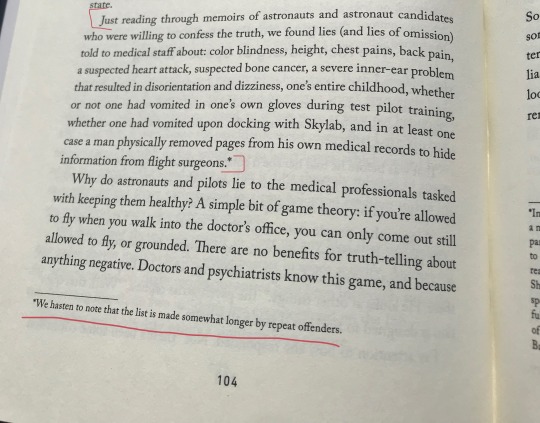
“Astronauts are liars.” From A City On Mars by Kelly and Zach Weinersmith
2 notes
·
View notes
Text
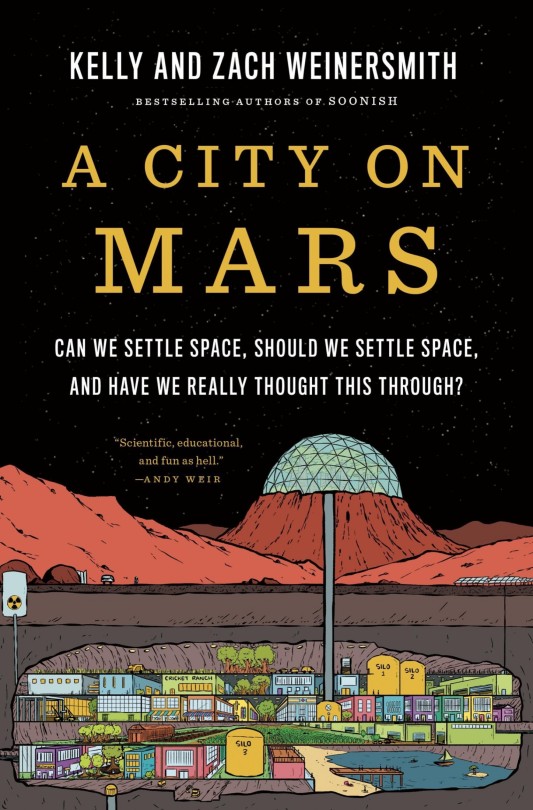
A City on Mars by Kelly Weinersmith & Zach Weinersmith
A discussion of the substantial issues between humanity and space settlements.
3 notes
·
View notes
Text






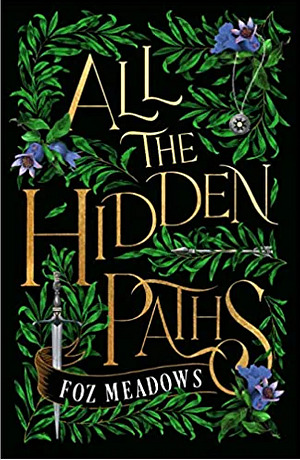

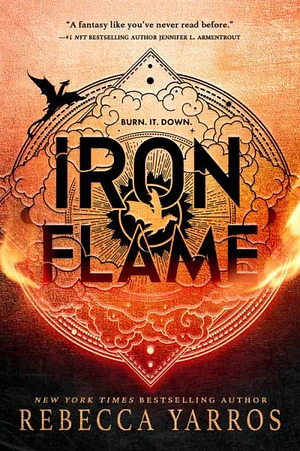

December Monthly Recap
I read more in December than I did in November, a good indicator of the holiday break and also my better mood and stress levels. My favorite book I read this month was A City on Mars, which was a really fascinating and intriguing nonfiction book about space travel and space settlement. My least favorite was A Night to Surrender, although it had a lot of competition (not the best reading month quality wise).
A City on Mars by Kelly and Zach Weinersmith: 5/5
A Delicate Deception by Cat Sebastian: 3/5
The Blue, Beautiful World by Karen Lord: 2.5/5
The Hallowed Hunt by Lois McMaster Bujold: 4.25/5
Witch Hat Atelier, Vol. 11 by Kamome Shirahama: 4.5/5
Vicious by V.E. Schwab: 4/5
Four Roads Cross by Max Gladstone: 4.75/5
Iron Flame by Rebecca Yarros: 4.5/5
The Secret, Book, and Scone Society by Ellery Adams: 2.75/5
The Fiancee Farce by Alexandria Bellefleur: 5/5
A Night to Surrender by Tessa Dare: 2/5, dnf
Knit, Purl, a Baby and a Girl by Hettie Bell: 2.5/5
All the Hidden Paths by Foz Meadows: 4.5/5
The Time Traveler's Guide to Medieval England by Ian Mortimer: 4/5
And my final stats for my goals below the cut, although I'll talk about them again when I reflect on how they went:
23 in 2023: 18 [+1]
Read 100 books: 188/100 [+14]
Translated works: 5 [+1]
Physical TBR: 16 [+2]
Top of TBR: 8 [+1]
Books in Spanish: 7 [+0]
Read 40% AOC: 22.2% [-0.5%]
Discworld Books: 3 [+0]
Series: 32 started vs. 36 caught up/finished [+0/+5]
Storygraph recs: 2 | avg. 3.25/5 [+0]
Indigenous authors: 3 [+0]
4 notes
·
View notes
Text
Due to nearly daily power outages and dropping out of college, I've had a lot more free time this year, so I decided I'd read more this year, and here's a list of the things I read either partly or to completion (I'm including ttrpg sourcebooks, comics, and fanfics cause I feel like it)
Jerusalem by Alan Moore
The Fifth Science by Exurb1a
Horus Rising by Dan Abnett
False Gods by Graham McNeill
Galaxy in Flames by Ben Counter
Flight of the Eisenstein by James Swallow
Descent of Angels by Mitchel Scanlon
The Men Who Stare at Goats by Jon Ronson
The Psychopath Test by Jon Ronson
Lost at Sea by Jon Ronson
The Rise of Kyoshi by F.C Yee
The Shadow of Kyoshi by F.C Yee
The Dawn of Yangchen by F.C Yee
The Legacy of Yangchn by F.C Yee
A Study in Emerald by Neil Gaiman
Norse Mythology by Neil Gaiman
Dreadnought by April Daniels
Sovereign by April Daniels
The Emerald Tablets of Thoth the Atlantean
The Corpus Hermeticum
RWBY: Scars by Doneesses
The Silmarillion by JRR Tolkien
The Prague Cemetery by Eco Umber
Hyperbole and a Half by Allie Brosh
The Bible Repairman by Tim Powers
Soonish: Ten Emerging Technologies That'll Improve and/or Ruin Everything by Kelly and Zach Weinersmith
The Gods of Pegana by Lord Dunsany
Time and the Gods by Lord Dunsany
Welcome to the NHK by Tasuhiko Takimoto
What If? by Randall Munroe
TTRPGs I read books for:
Eclipse Phase
Exalted (2e and 3e)
Lancer
Nobilis (2e and 3e)
Numenera
Ponyfinder
Unknown Armies (1e, 2e, and 3e)
World of Darkness (Old and Chronicles)
Continuum, Roleplaying in the Yet
Broken Worlds
Comics and Manga I read this year:
A Study Emerald by Rafael Scavone, Rafael Albuquerque, and Dave Stewart
Alters by Paul Jenkins and Leila Leiz
All the Last Airbender and Legend of Korra comics
Black Hole by Charles Burns
Giant Days by John Allison, Lissa Treiman, Max Sarin, and Julia Madrigal
The Unbelievable Gwenpool by Christopher Hastings, Gurihiru, Danilo Beyruth, Iren Strychalski, Myisha Haynes, and Alti Firmansyah
Gwenpool Strikes Back by Leah Williams and David Baldeon
I Hate Fairyland by Skottie Young
Irredeemable by Mark Waid, Peter Krause, Diego Barreto, and Eduardo Barreto
Jem and the Holograms by Kelly Thompson, Sophie Campbell, Emma Vieceli, and Corin Howell
Judas by Jeff Loveness and Jakub Rebelka
Kill 6 Billion Demons by Tom Bloom
Monstress by Marjorie Liu and Sana Takeda
Saga by Brian K. Vaughan and Fiona Staples
The Woods by James Tynion V and Michael Dialynas
The Wicked + The Divine by Kieron Gillen and Jaime McKelvie
Batman: Whatever Happened to the Craped Crusader by Neil Gaiman and Andy Kubert
Cheer Up! Love and Pompoms by Crystal Fraiser and Val Wise
Okko by Hub
Chainsaw Man by Tatsuki Fujimoto
Goodbye, Eri by Tatsuki Fujimoto
Inside Mari Shuzo Oshimi
#books#manga#comics#thought I read more manga this year#guess I was wrong#this list was honestly longer than I expected#but the comic and manga list was also shorter than I thought#I'm currently reading the Legacy of Yangchen and so far its been a faster read than most of the other books I read the last few months#should finish it in like five days at my current rate#I remember when I could read hundreds of pages in a day#my school library gave me a little certificate in year 9 because I'd taken out the most books that year#now I consider reading 50 pages in one day unusually quick
2 notes
·
View notes
Text

3. Fun fact: "Cobotics" is a field that deals with robots working alongside a human
- footnote from Soonish by Kelly and Zach Weinersmith
C/fe got renamed
6 notes
·
View notes